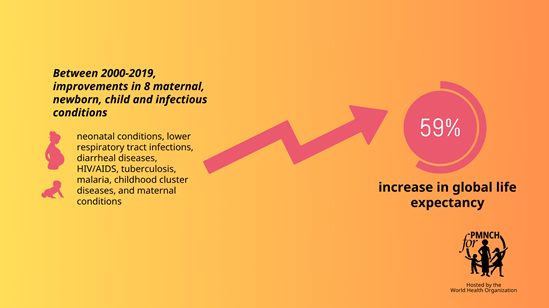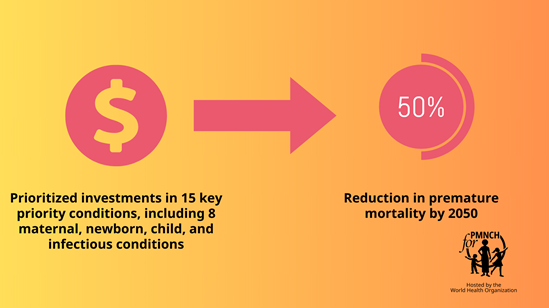
Maternal, newborn and child health
(including stillbirths)
Many countries are not on track to reach the Sustainable Development Goal targets for reducing maternal, newborn and child mortality by 2030. Nearly 95% of all maternal deaths occurred in low and lower-middle-income countries in 2020. Rising conflict, climate change, and cost of living disproportionately affect women and children, with about 50% of maternal, newborn and under-five deaths occurring in humanitarian settings. In 2020, 1 in 10 babies were born preterm, a figure that has barely changed in the last decade. Of the 4.9 million under-five deaths in 2022, nearly half occurred during the first month of life, mostly from preventable causes.
We have the evidence and tools to change the course of history on maternal, newborn and child health (MNCH). Strong commitments of governments, stakeholders, communities and families can result in improved health. We know what works and we can be hopeful - the number of global child deaths reached a historic low in 2022, for instance. However, more must be done. Actions to reduce preventable maternal, newborn, and child mortality and morbidity, including stillbirths, need to be amplified by policies and investments that enhance integration and quality of care. These efforts must be based on a life course approach, grounded in universal health coverage and primary health care with a supported and trained health workforce and a gender-responsive health system.
Pushing MNCH progress forward will depend on focusing where gaps are deepest targeting the most vulnerable populations, and where trends are rising, including humanitarian and climate-affected settings. In this regard, PMNCH is well positioned to guide the way forward on actions to advance MNCH equity and financing, through advocacy and accountability contributing to country-level implementation.
Fact sheets
Databases
Partner resources
Every Newborn Action Plan 2020-2025
A Neglected Tragedy: The global burden of stillbirths
Maternal mortality: Levels and trends 2000 to 2017
Roadmap to Accelerate Progress for Every Newborn in Humanitarian Settings 2020-2024
Strengthening quality midwifery education for Universal Health Coverage 2030: Framework for action
Managing complications in pregnancy and childbirth: a guide for midwives and doctors – 2nd ed.
Quality, equity, dignity: the network to improve quality of care for maternal, newborn and child health – strategic objectives
WHO recommendations on antenatal care for a positive pregnancy experience
WHO recommendations on child health
Guidelines on physical activity, sedentary behaviour and sleep for children under 5 years of age
WHO recommendations on newborn health
Audit and review of stillbirths and neonatal deaths
Maintaining essential health services: operational guidance for the COVID-19 context
WHO recommendations on maternal and newborn care for a positive postnatal experience
News
All →Publications
All →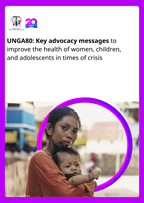
Key advocacy messages to improve the health of women, children and adolescents - UNGA80
As the United Nations marks its landmark 80th year, global leaders will convene in New York City to build consensus and confront increasingly complex global...
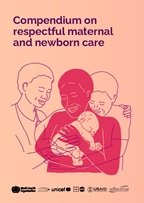
Compendium on respectful maternal and newborn care
The compendium supports efforts to end mistreatment and achieve respectful maternal and newborn care, marking a decade since the WHO’s 2014 statement...
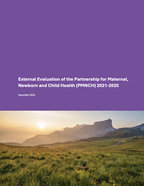
2021-2025 external evaluation
The Partnership for Maternal, Newborn and Child Health (PMNCH) serves as a cornerstone in global health advocacy, with a focus on advancing the health...
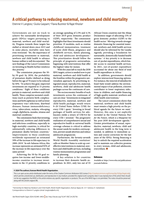
Governments are not on track to achieve the sustainable development goals (SDGs) targets pertaining to maternal, newborn and child mortality. Progress...

.png?sfvrsn=6d0e27cd_1)




